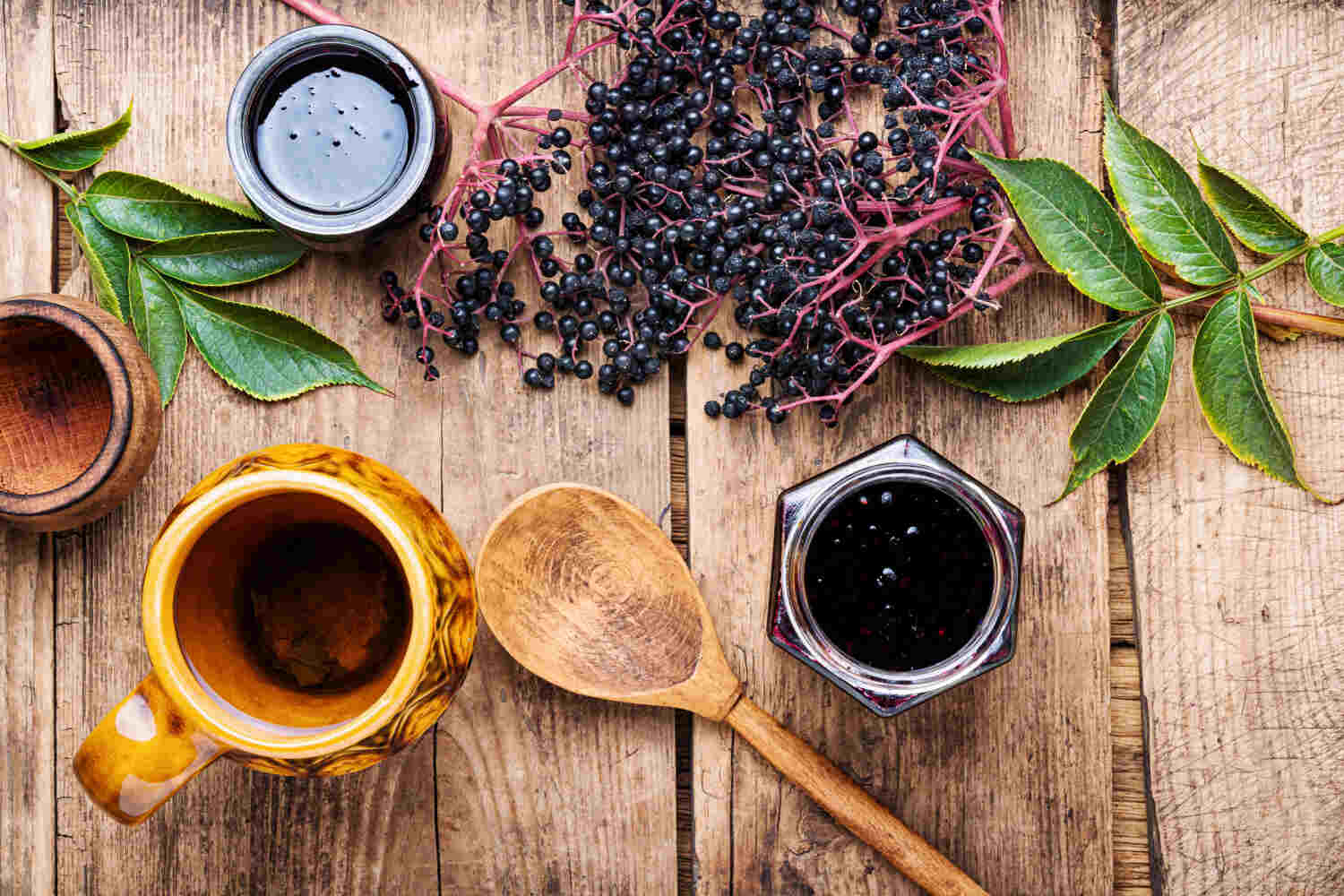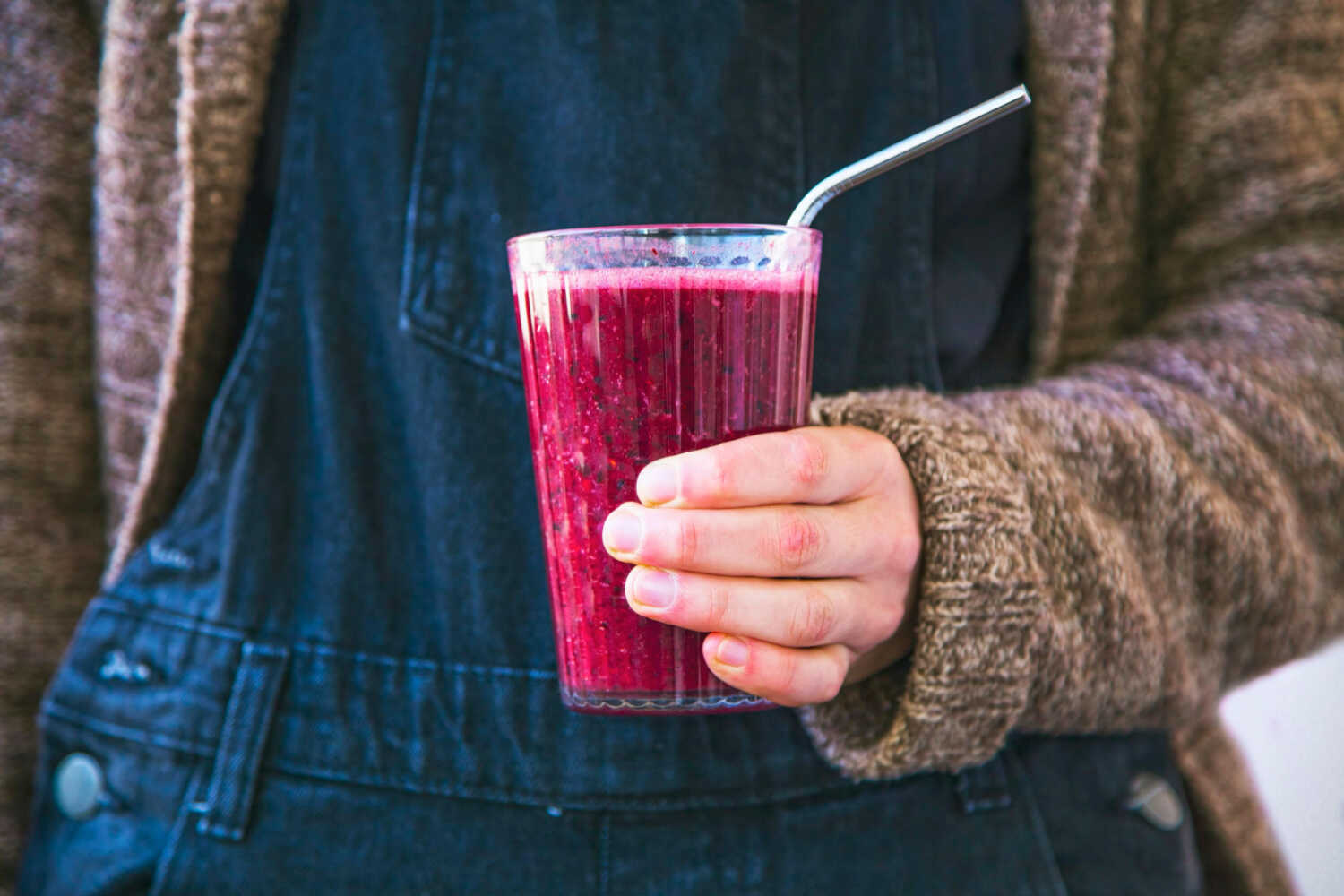
Having a baby is a life-altering experience. There is a stronger emphasis on a woman’s physical and mental wellness. Expectant moms frequently seek natural remedies to support their changing bodies and growing kids. Elderberry has risen to prominence among the many available alternatives because of the positive health effects it may have. However, because of the potential risks to mother and child, it is essential to learn as much as possible about using elderberry during pregnancy.
A tiny, dark purple fruit called elderberry has been used as medicine for hundreds of years. It has received a lot of praise for its high nutritional value and immune-boosting qualities. Is it okay for pregnant women to use, and what are the pros and cons of that? We’ll talk about the pros, cons, and general possibility of eating elderberries while you’re pregnant in this in-depth post. Keep reading this piece to learn everything there is to know about this incredible fruit.
In This Article
- What is Elderberry?
- Is It Safe To Eat Elderberry During Pregnancy?
- Health Benefits Of Eating Elderberry During Pregnancy
- Side Effects Of Eating Elderberry During Pregnancy
- Who Should Not Have Elderberry During Pregnancy?
- FAQ’s
What is Elderberry?
The Elderberry, or Sambucus genus of flowering plants, is notable for its deep purple berries. Sambucus nigra (the European Elderberry) and Sambucus canadensis (the American Elderberry) are the two most popular species of elderberry. For centuries, these small and delicious fruits are the primary ingredients in medicinal practices.
Because of their possible health advantages, elderberries frequently help produce a wide range of goods. Elderberries are available in many forms, such as candy, syrup, and beverages. The high concentration of vitamins, minerals, antioxidants, and flavonoids in these foods is mainly responsible for their healthful effects. However, when pregnant, it’s imperative to think about risks and side effects.
Is It Safe To Eat Elderberry During Pregnancy?

Pregnant women often worry whether elderberry is a healthy addition to their diet. Generally, it is regarded as safe for intake during pregnancy when used in moderation and in the recommended forms. You may get elderberries in the form of tea or syrup. However, before eating elderberry during pregnancy, it is essential to speak with a healthcare expert since individual situations may differ.
Elderberry’s nutrient-rich nature suggests it may be safe to consume during pregnancy. Elderberries have a lot of vitamin C in them. It can make your immune system stronger and keep you from getting sick. They also have a lot of fiber. Elderberry syrup can have antiviral and anti-inflammatory effects, making it a potential treatment for the common cold and influenza.
Health Benefits Of Eating Elderberry During Pregnancy

Elderberry may have beneficial health effects; however, excessive usage is not wise. Use it under the advice of a healthcare expert to ensure that it corresponds with your particular pregnancy demands. The following are some of the advantages of consuming elderberry when pregnant:-
1. Immune Support
Eating elderberry during pregnancy can improve maternal health by strengthening the immune system. Flavonoids, which are present in abundance in elderberries, are potent antioxidants. These can help in defending the body against free radicals. Pregnant ladies may benefit significantly from this. It is due to the need for a healthy immune system for both the mother and the unborn child.
2. Cold and Flu Relief
People commonly suggest elderberry syrup for its potential to ease cold and flu symptoms. Finding effective and safe treatments for these common complaints during pregnancy can be difficult. Consuming elderberry syrup may mitigate the intensity and length of cold and flu symptoms. It can help pregnant women feel better without them having to take medicine that may not be safe for them to use.
3. Rich In Nutrients
The elderberry is a rich source of vitamins, minerals, and other vital elements. Particularly important for the fetus’s health and development is vitamin C. Elderberries are a good source of vitamin C, which is essential for a pregnant woman. It may be beneficial to both her and the baby’s health.
4. Fiber Content
Fiber is another component found in elderberries. It can help pregnant women keep their bowels moving usually. Pregnant women often have constipation, but upping their fiber intake can help.
Side Effects of Eating Elderberry During Pregnancy

Although elderberry is considered safe in general, the safety of certain products may differ. There is a larger potential for contamination in homemade elderberry preparations. As a result, choose elderberry products that reliable suppliers have commercially made. Among the critical risk factors of consuming elderberry during pregnancy are the following:
1. Gastrointestinal Discomfort
The ingestion of elderberries may cause upset stomachs. It may result in nausea, diarrhea, or cramping in the stomach, especially when ingested excessively. Due to the hormonal changes that impact digestion during pregnancy, these symptoms could be more noticeable.
2. Allergic Reactions
While rare, allergic responses to elderberries can occur in certain people. From minor skin rashes to more severe symptoms like swelling of the lips, tongue, or cheeks, allergic reactions can manifest in various ways. See a doctor before ingesting elderberries if you have a history of berry allergies or are more susceptible to allergies.
3. Cyanide Concern
Natural cyanogenic glycosides are present in trace levels in elderberry plants. When eaten, it may potentially emit cyanide. There is relatively little chance of cyanide poisoning from elderberries. Furthermore, it is safe to prepare or process the berries. Nonetheless, there is a slight danger associated with consuming raw or unripe elderberries, so it is best to stay away from them while pregnant.
Who Should Not Have Elderberry During Pregnancy?
When taken in moderation and appropriately processed, elderberries are usually safe for most pregnant women. It could be wiser to stay away from elderberry during pregnancy under the following circumstances, though:-
1. Allergies
See your healthcare professional before taking elderberry products if you have a history of adverse responses to foods or if you have a known sensitivity to berries.
2. High Blood Sugar
The blood sugar levels can be impacted by elderberry syrup, mainly if additional sweets are present. Before utilizing elderberry products, speak with your healthcare professional if you have gestational diabetes. Consult your doctor for any other concerns regarding blood sugar control during pregnancy.
3. Underlying Health Conditions
If you use any medications that react to elderberry or have any underlying medical issues, see a healthcare practitioner.
Under no circumstances should you withhold information from your healthcare provider to ensure whether elderberry is appropriate for your particular pregnancy situation. Always be open and honest with them.
For expectant mothers, elderberries might be a beneficial supplement to their diet. It could provide possible immunological support and alleviation from flu and cold symptoms. Elderberry during pregnancy should, nonetheless, be used sparingly and under a doctor’s supervision. It will guarantee both safety and suitability for your particular circumstance. Elderberries may have many positive advantages, but there are also hazards and negative consequences to be aware of, particularly if you’re pregnant.
FAQ’s
1. Is Elderberry Suitable For Babies?
It is not advisable to provide elderberries to infants younger than one-year-old. Their young digestive systems might not be able to handle the natural chemicals found in elderberries. Speak with a pediatrician about your worries regarding your child’s health and immune system to choose the best course of action.
2. Can We Eat Raw Elderberry?
In general, it is best to stay away from raw elderberries, especially if you are pregnant. There are trace levels of naturally occurring cyanogenic glycosides in raw elderberries. When consumed, it may emit cyanide. Elderberries can be safely consumed by cooking or processing them to reduce the danger of cyanide.
